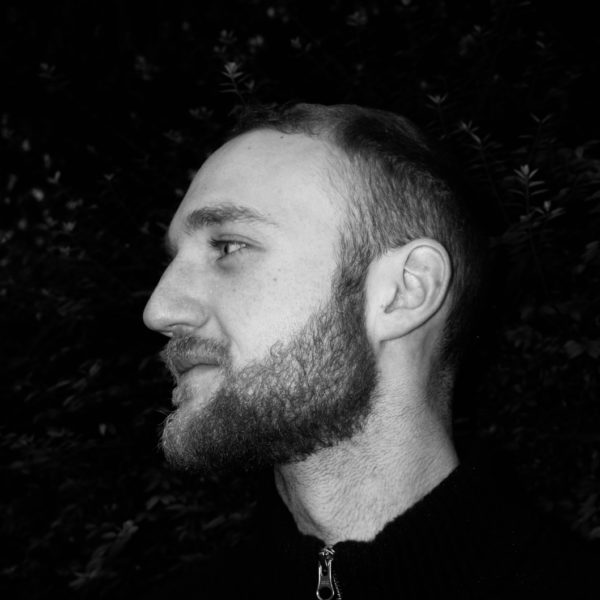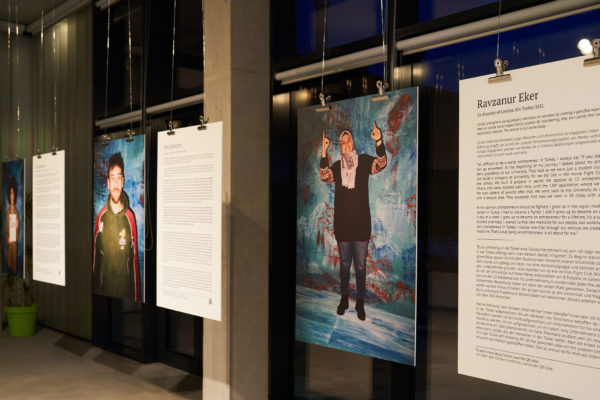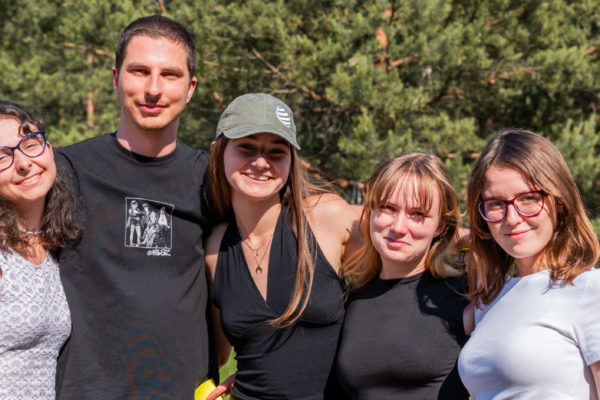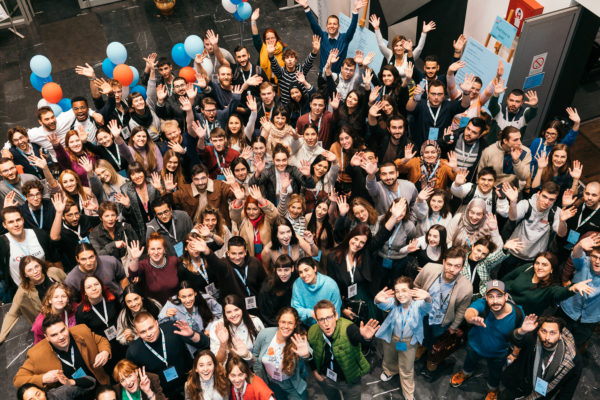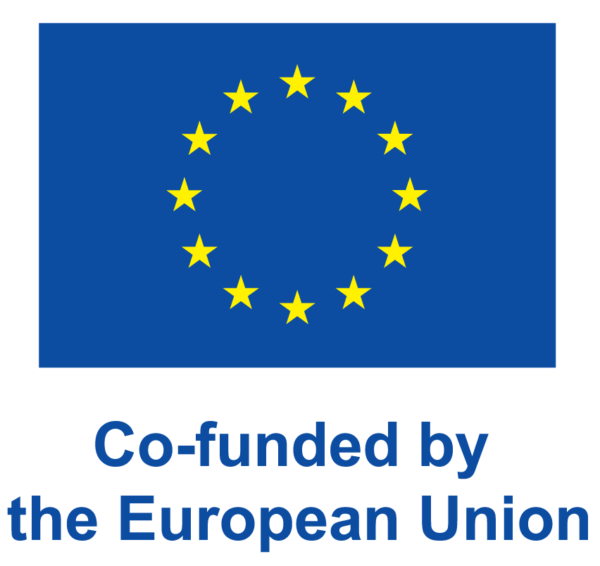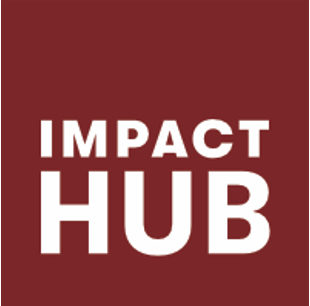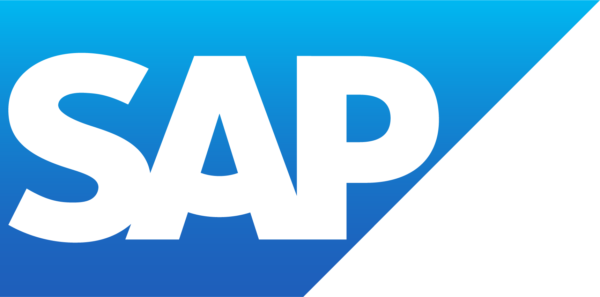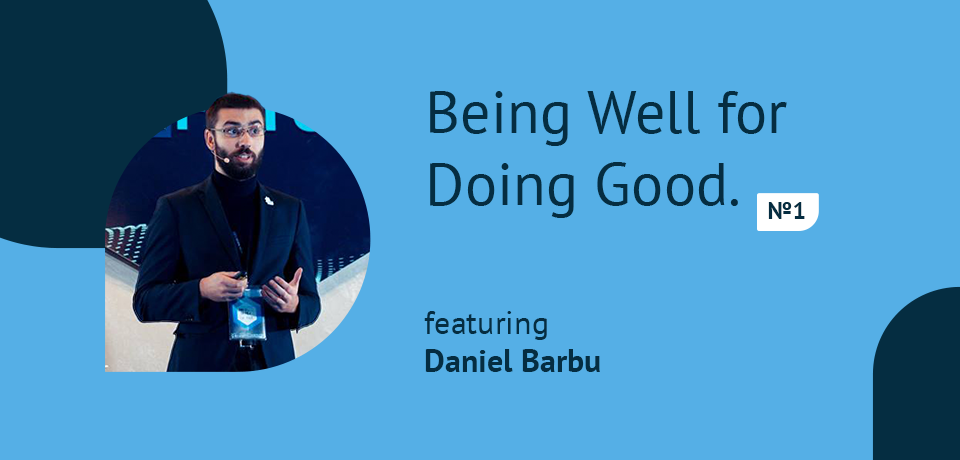
Transforming the discourse around well-being — Being well for doing good
In conversation with Daniel Barbu, founder of I’m Fine. Welcome to the first episode of the Being Well for Doing Good series! Created in partnership with the non-profit Hil-Foundation, this […]
In conversation with Daniel Barbu, founder of I’m Fine.
Welcome to the first episode of the Being Well for Doing Good series!
Created in partnership with the non-profit Hil-Foundation, this series will tell the stories of alumni from Social Impact Award around the world, and their journeys with well-being.
Unfortunately, social entrepreneurs are often faced with intense stress and high risk of burnout. With this in mind, we at SIA have worked to put well-being at the heart of our work, to cultivate a healthy attitude towards social entrepreneurship amongst our participants.
This week, we sat down with Daniel Barbu, founder and CEO of I’m Fine. Embodying the concept of “vulnerability as strength”, Daniel aims to change the discourse around our approaches to well-being and mental health, knowing personally how well-being practices can change one’s life.
We hope you enjoy. Let us know your thoughts in the comments below!
Tell us a little bit about yourself, and what your venture I’m Fine does!
My name is Daniel and I’m 27 years old from Bucharest. I started I’m Fine with my two best friends two years after graduating from University.
I’m Fine’s mission is to improve people’s mental health by improving access to psychotherapy and improving the results of psychotherapy. In Romania, like in many other developed countries, mental health services are a luxury. Our app provides support services to users for free, and connects users to therapists based on their needs and their preferences.
I started the venture at a low moment in my life, when I personally experienced how difficult it is to get help. We applied to SIA with only an idea, and by the end of the incubation had a minimum-viable product (MVP) for our app. We’re now working full-time on the venture!
How did your mental health challenges progress during the creation of your venture?
It’s hard to truly get rid of these kinds of issues. There’s no nicotine patch, where you lose interest in smoking. I think I needed to find a deeper sense of purpose, something to sink my teeth into while at University. Working on your social venture is very rewarding and versatile, and in a way it’s helped me with these challenges.
We also do quite well inside the team when it comes to taking care of our mental health, better than most other ventures I know. We are all great friends and know each other’s needs, so it’s easy to understand where we’re coming from. On top of that, our work focuses on mental health and therapy, so we have no problem being vulnerable about this, unlike the culture in Romania.
What kind of challenges do you run into when it comes to taking care of your well-being while running a venture full-time?
Uncertainty of cash flow and financial viability puts pressure on us. We charge the therapists who use our app a subscription fee, but we don’t monetize users who need access to therapy. It would help us to do so in the future, but it’s hard to strike a balance between being financially viable and keeping your customers happy, while still making sure they can use our services.
We also decided to wait for investments and put our own money into the project. However, building our app requires lots of programmers, so we work with freelancers, which tend to be very expensive. This isn’t sustainable in the long-term, as it creates long-hours, uncertainty, and stress.
What kind of practices have you put in place to keep your well-being in balance while still moving forward with your venture?
I personally use our product, and go through the therapy process for trauma and social anxieties like public speaking and letting my colleagues down. I also have a strong support network in a supportive family and girlfriend. I was very honest with them about why I am doing this from the get-go, so they understand my reasons for it.
I think this understanding is really crucial. I urge every new social entrepreneur to take the time to be vulnerable and really explain to those around them why they are embarking on this journey and why it’s important to them. I often see founders directly infer that their loved ones will not be supportive, which can only lead to a negative outcome.
I also use I’m Fine for guided meditation, and to note down my anxious thoughts. It greatly helps to write down what that negative voice in my head says and break it all down once I am out of an anxious state. Later, when I am in a bad place, I can come back to these positive thoughts, and they help calm me down. I would also encourage anyone who struggles with anxiety to use this practice.
In a study, entitled The Possibilists, conducted in 2021 by an alliance of 16 of the world’s leading youth social innovation networks, we found out that 54% of the more than 800 respondents experience a high risk of burnout. To ensure social entrepreneurs are supported, and adopt healthy work and team cultures, it’s crucial the entire social entrepreneurship ecosystem takes action on these findings. For more information on the study and other fascinating data, take a look at The Possibilists website.
